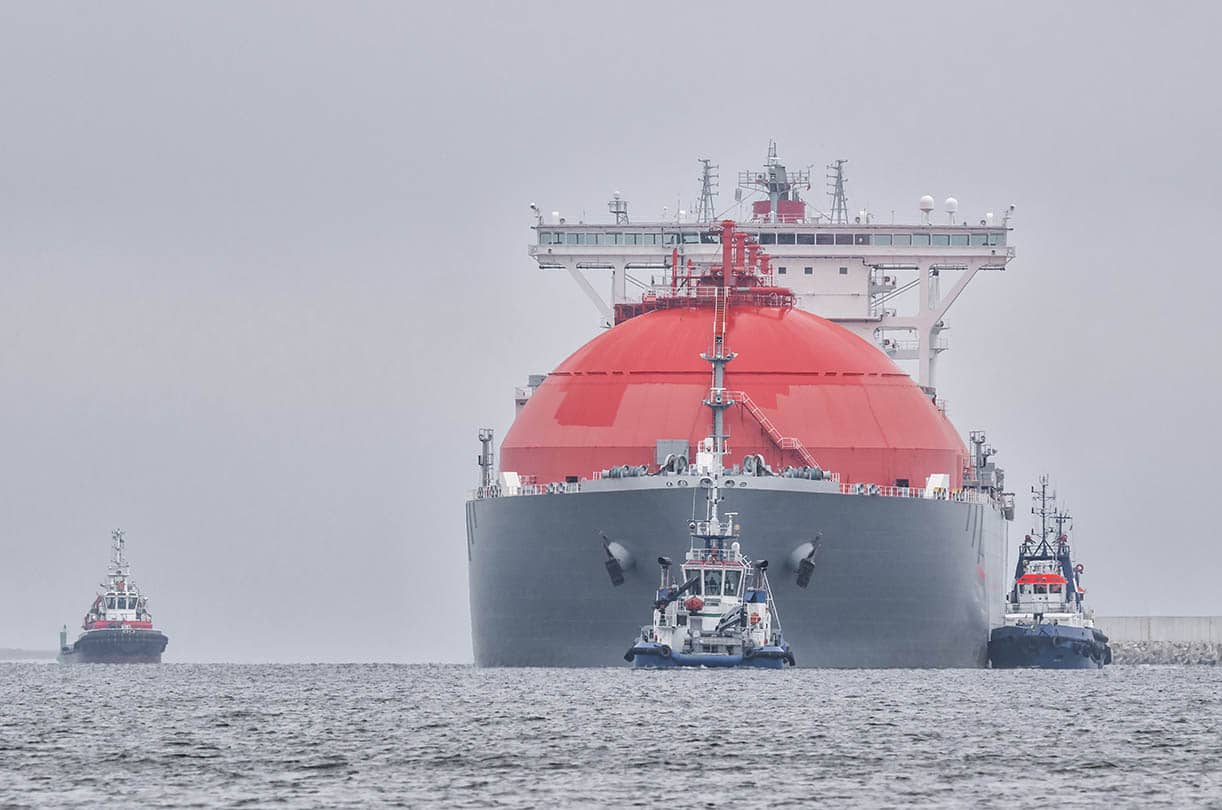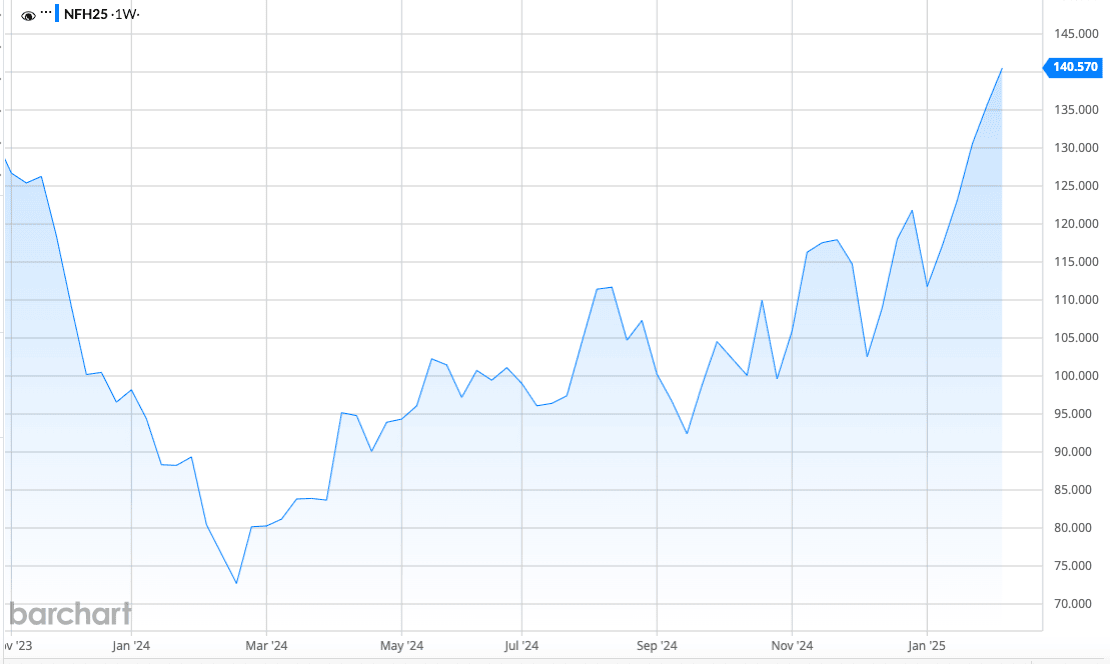EU & UK Gas Price Spike Will Be Short-lived, Says Julius Baer
- Written by: Sam Coventry

Image © Adobe Images
European natural gas prices have surged in recent weeks, reaching fresh highs and edging closer to the EUR 60 mark.
However, Julius Baer's Head of Economics & Next Generation Research, Norbert Rücker, believes the spike will be short-lived and does not reflect fundamental market realities.
“The narrative around the strong price bounce reads like a broken record,” Rücker stated, challenging the conventional explanations of depleting gas storage, strong demand due to cold weather, and concerns over inventory refilling during the summer months. According to Rücker, these arguments fail to acknowledge the broader context of the natural gas market.
The UK benchmark gas price for next-month delivery reached 140p per therm, the highest level achieved since October 2023. The European equivalent was €60 per megawatt hour.
Above: UK wholesale natural gas for delivery in March.
Julius Baer’s research highlights that despite recent withdrawals, European gas storage levels remain well within the ten-year average. Rücker suggests this is a more appropriate benchmark rather than the past two years’ exceptionally high inventory levels.
Furthermore, while winter weather has been more typical this year compared to recent mild seasons, gas demand in key markets such as the United Kingdom and France has remained at or below historical averages. Although power plant gas consumption increased to compensate for lower wind generation, this has had a relatively minor impact on market balances.
The response to today’s elevated prices is already underway, which will cap price gains. Rücker notes weak Asian demand means LNG shipments easily bid away from Asia and towards Europe at current prices.
Additionally, new gas export facilities in North America and Africa are ramping up output, while pipeline flows from France, Germany, and Austria are reversing to replenish Northwest Europe’s reserves.
Looking ahead, Julius Baer anticipates a seasonal decline in heating demand and a rise in solar power generation as spring approaches, which will further ease pressure on gas markets.
Rücker warns that the current bullish sentiment could unwind quickly as market fundamentals reassert themselves. “Market sentiment looks exceptionally bullish and at risk from unwinding,” he observed, adding that potential shifts in European geopolitics and the ongoing war in Ukraine are not currently factored into price trends.
In line with their bearish outlook, Julius Baer has initiated a second short position on European natural gas, targeting the autumn 2025 contracts. “Admittedly, our narrative and bearish view on European natural gas might sound like a broken record too,” Rücker conceded but emphasized that the market’s current exuberance is at odds with long-term fundamentals.
While acknowledging risks such as infrastructure disruptions, policy interventions, and prolonged bullish sentiment, Julius Baer remains confident that the recent gas price surge is not sustainable. With storage levels stable, supply increasing, and seasonal demand set to decline, the bank sees a strong case for a market correction in the near future.
